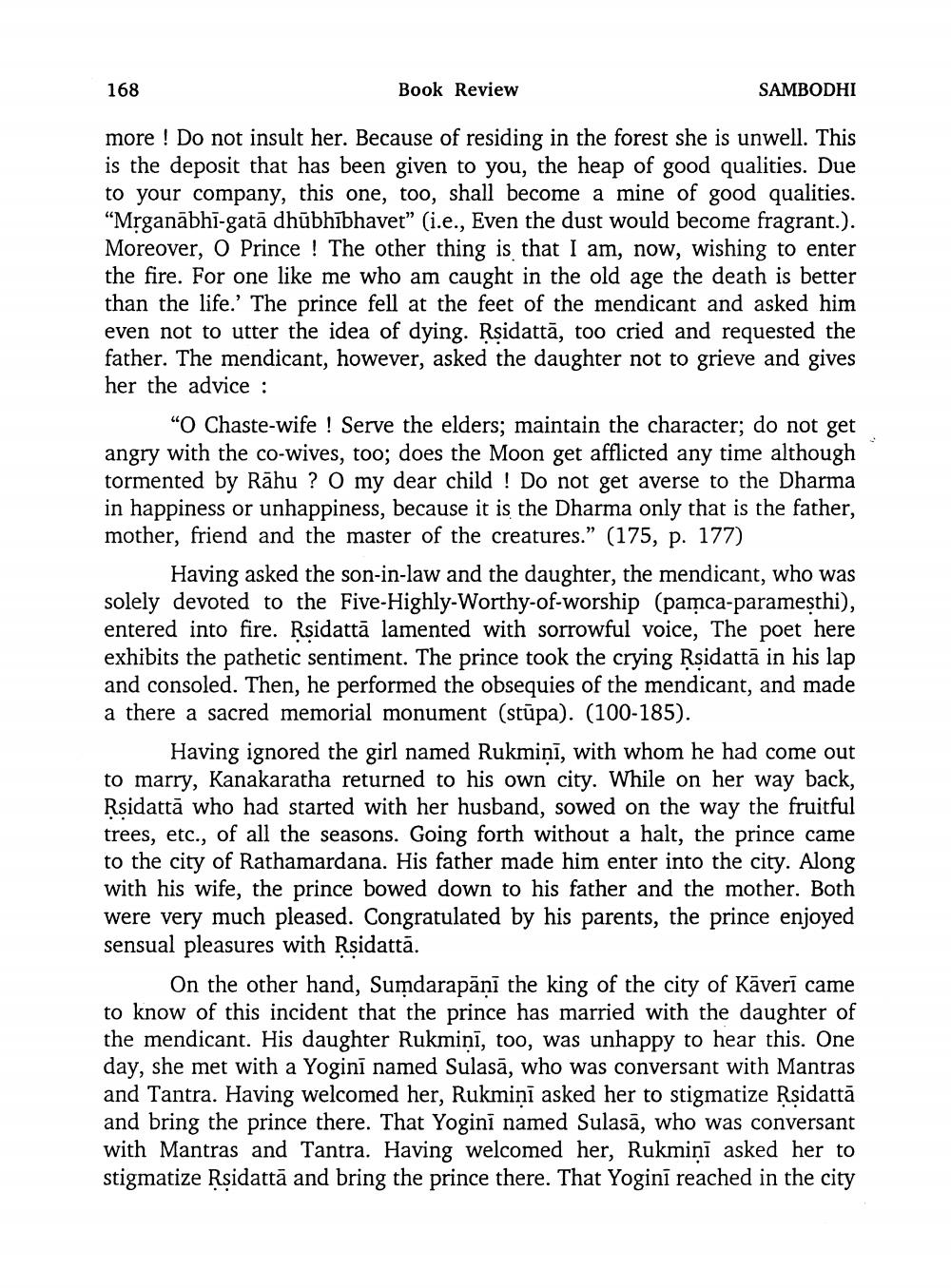________________
168
Book Review
SAMBODHI
more ! Do not insult her. Because of residing in the forest she is unwell. This is the deposit that has been given to you, the heap of good qualities. Due to your company, this one, too, shall become a mine of good qualities. “Mrganābhī-gatā dhūbhībhavet” (i.e., Even the dust would become fragrant.). Moreover, O Prince ! The other thing is that I am, now, wishing to enter the fire. For one like me who am caught in the old age the death is better than the life. The prince fell at the feet of the mendicant and asked him even not to utter the idea of dying. Rsidattā, too cried and requested the father. The mendicant, however, asked the daughter not to grieve and gives her the advice :
"O Chaste-wife ! Serve the elders; maintain the character; do not get angry with the co-wives, too; does the Moon get afflicted any time although tormented by Rāhu ? O my dear child ! Do not get averse to the Dharma in happiness or unhappiness, because it is the Dharma only that is the father, mother, friend and the master of the creatures." (175, p. 177)
Having asked the son-in-law and the daughter, the mendicant, who was solely devoted to the Five-Highly-Worthy-of-worship (pamca-paramesthi), entered into fire. Rsidattā lamented with sorrowful voice, The poet here exhibits the pathetic sentiment. The prince took the crying Rsidattā in his lap and consoled. Then, he performed the obsequies of the mendicant, and made a there a sacred memorial monument (stūpa). (100-185).
Having ignored the girl named Rukmini, with whom he had come out to marry, Kanakaratha returned to his own city. While on her way back, Rsidattā who had started with her husband, sowed on the way the fruitful trees, etc., of all the seasons. Going forth without a halt, the prince came to the city of Rathamardana. His father made him enter into the city. Along with his wife, the prince bowed down to his father and the mother. Both were very much pleased. Congratulated by his parents, the prince enjoyed sensual pleasures with Rsidattā.
On the other hand, Sumdarapānī the king of the city of Kāverī came to know of this incident that the prince has married with the daughter of the mendicant. His daughter Rukmini, too, was unhappy to hear this. One day, she met with a Yogini named Sulasā, who was conversant with Mantras and Tantra. Having welcomed her, Rukmini asked her to stigmatize Rsidattā and bring the prince there. That Yogini named Sulasā, who was conversant with Mantras and Tantra. Having welcomed her, Rukmini asked her to stigmatize Rsidattā and bring the prince there. That Yoginī reached in the city




